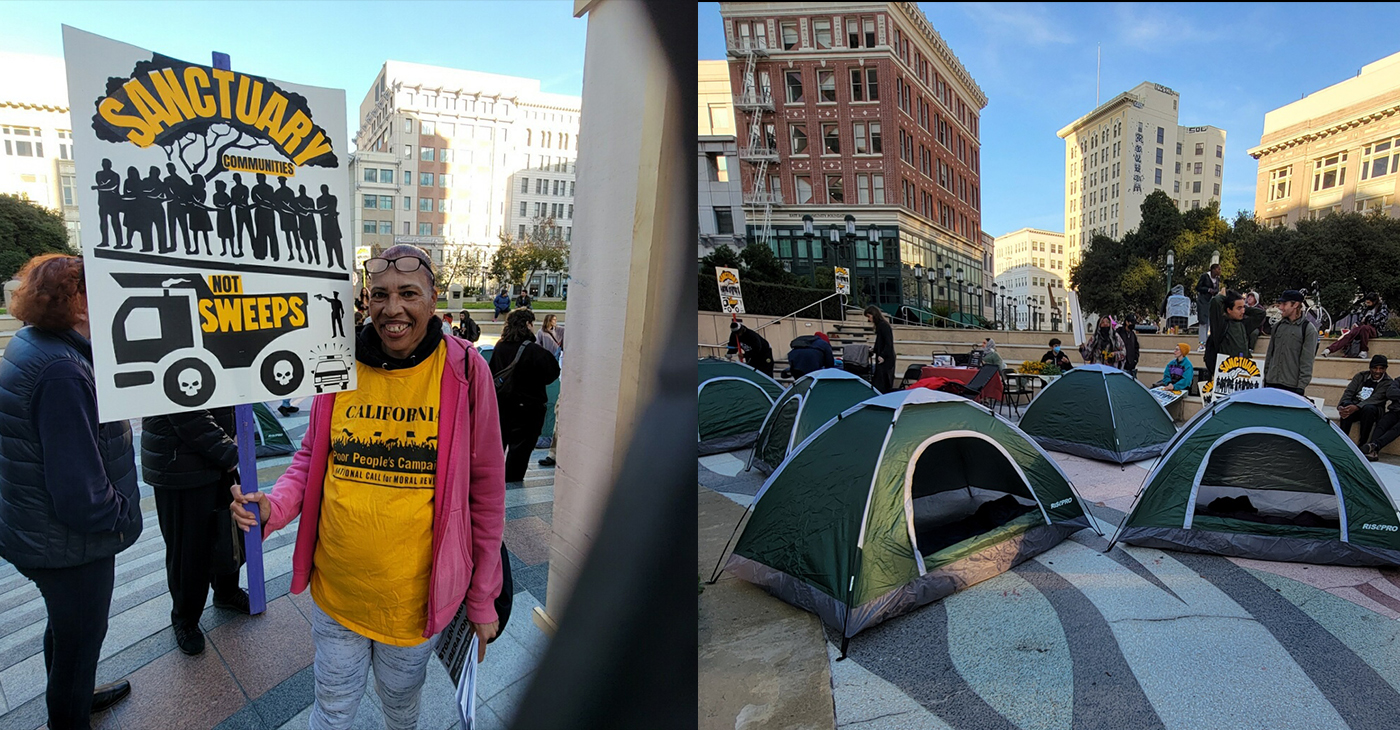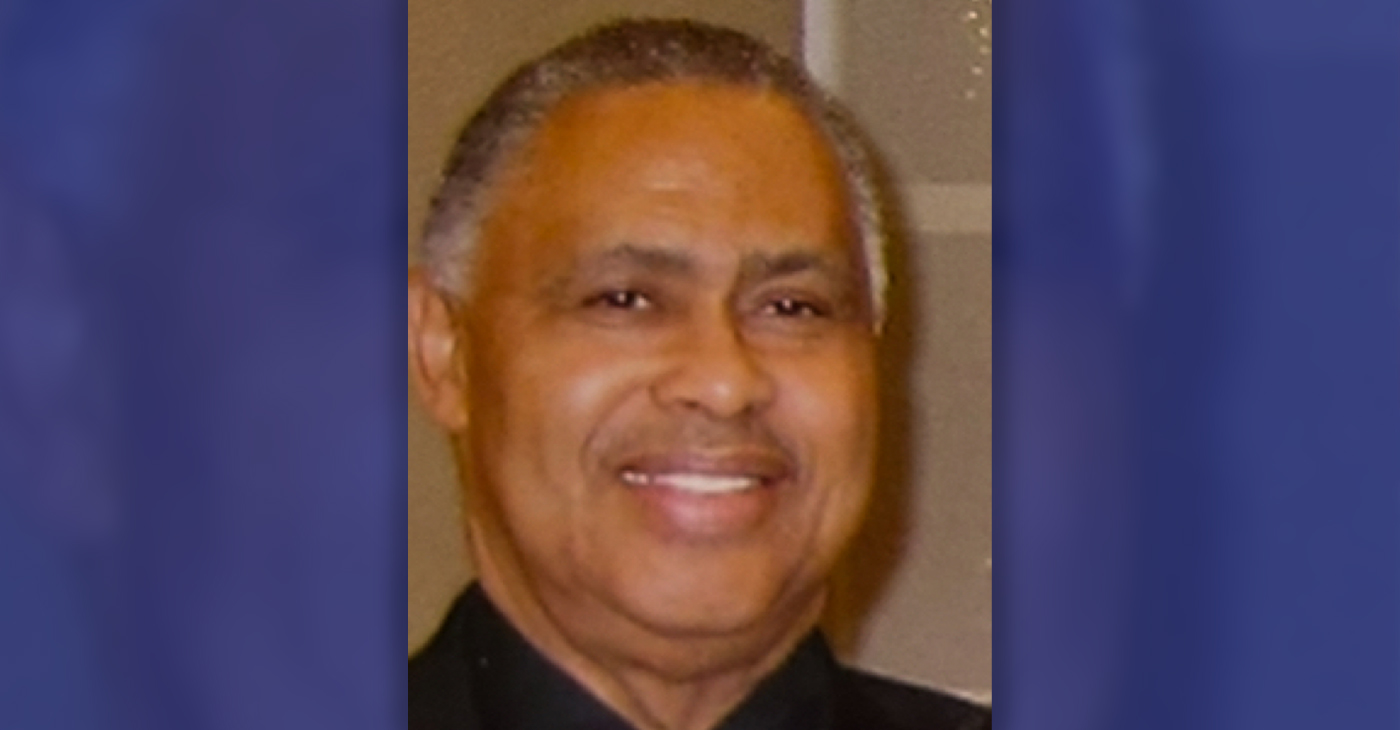Berkeley
Tony Thurmond Wins District 15th Assembly Race
In a race between two Democrats, Tony Thurmond beat Elizabeth Echols with 54 percent of the vote for the 15th District of the California Assembly.
District 15 includes 11 cities between the southern edges of Oakland and the northern border of Hercules.
The victory is considered an “upset” by some due to the political backing Echols received from Berkeley Mayor Tom Bates, his wife, State Senator Loni Hancock and termed-out District 15 Assemblymember Nancy Skinner.
This is the first time in years that a candidate had won the seat without support from Bates.
Thurmond gives credit for his victory to the hard work of his supporters.
“Our win is a testament to our volunteers who walked the precincts every single day and stayed focused,” Thurmond said. “I didn’t get the sense that being in the precincts every day was happening for the other campaign.”
Thurmond’s platform emphasized climate change issues, combating violent crime, creating jobs, and fostering youth development. He has been outspoken and in nurses’ picket lines backing efforts to save Doctors Medical Center in San Pablo.
His first plan of action in Sacramento is to push for youth recidivism and truancy reduction. Schools lose government funding when students are absent; less funding means less supplies and equipment.
Thurmond sees criminal justice reform and truancy reform as interrelated issues. “When young children miss school, their learning suffers, which puts them at risk of dropping out of school and ending up in the criminal justice system.”
Activism
Bay Area Soda Taxes Don’t Just Affect Sales: They Help Change People’s Minds

UC Berkeley researchers found that taxes on sugar-sweetened beverages, coupled with media attention, coincided with significant changes in social norms around sugary drinks.
By Jason Pohl
UC Berkeley News
It wasn’t that long ago when cigarettes and soda were go-to convenience store vices, glamorized in movies and marketed toward, well, everyone.
Then, lawmakers and voters raised taxes on cigarettes, and millions of dollars went into public education campaigns about smoking’s harms. Decades of news coverage chronicled how addictive and dangerous cigarettes were and the enormous steps companies took to hide the risks and hook more users.
The result: a radical shift in social norms that made it less acceptable to smoke and pushed cigarette use to historic lows, especially among minors.
New UC Berkeley research suggests sugar-sweetened beverages may be on a similar path.
The city of Berkeley’s first-in-the-nation soda tax a decade ago, along with more recent Bay Area tax increases on sugar-sweetened drinks, have not only led to reduced sales. They are also associated with significant changes in social norms and attitudes about the healthfulness of sweet drinks, said Kristine A. Madsen, a professor at UC Berkeley’s School of Public Health and senior author of a paper published Nov. 25 in the journal BMC Public Health.
Over the span of just a few years, taxes coupled with significant media attention significantly affected the public’s overall perceptions of sugar-sweetened beverages, which include sodas, some juices, and sports drinks. Such a shift in the informal rules surrounding how people think and act could have major implications for public health efforts more broadly, Madsen said.
“Social norms are really powerful. The significant shift we saw in how people are thinking about sugary drinks demonstrates what else we could do,” Madsen said. “We could reimagine a healthier food system. It starts with people thinking, ‘Why drink so much soda?’ But what if we also said, ‘Why isn’t most of the food in our grocery stores food that makes us healthy?’”
Madsen and colleagues from UC San Francisco and UC Davis analyzed surveys from 9,128 people living in lower-income neighborhoods in Berkeley, Oakland, San Francisco, and Richmond. Using data from 2016 to 2019 and 2021, they studied year-to-year trends in people’s perception of sugar-sweetened beverages.
They wanted to understand how the four taxes in the Bay Area might have affected social norms surrounding sugary beverages — the unwritten and often unspoken rules that influence the food and drinks we buy, the clothes we wear and our habits at the dinner table.
Although social norms aren’t visible, they are incredibly powerful forces on our actions and behaviors; just ask anyone who has bought something after an influencer promoted it on TikTok or Instagram.
Researchers asked questions about how often people thought their neighbors drank sodas, sports drinks, and fruity beverages. Participants also rated how healthy several drinks were, which conveyed their own attitudes about the beverages.
The researchers found a 28% decline in the social acceptability of drinking sugar-sweetened beverages.
In Oakland, positive perceptions of peers’ consumption of sports drinks declined after the tax increase, relative to other cities. Similarly, in San Francisco, attitudes about the healthfulness of sugar-sweetened fruit drinks also declined.
In other words, people believed their neighbors weren’t drinking as many sugar-sweetened beverages, which affected their own interest in consuming soda, juices, and sports drinks.
“What it means when social norms change is that people say, ‘Gosh, I guess we don’t drink soda. That’s just not what we do. Not as much. Not all the time,’” Madsen said. “And that’s an amazing shift in mindsets.”
The research is the latest from UC Berkeley that examines how consumption patterns have changed in the decade since Berkeley implemented the nation’s first soda tax.
A 2016 study found a decrease in soda consumption and an increase in people turning to water. Research in 2019 documented a sharp decline in people turning to sugar-sweetened drinks. And earlier this year, Berkeley researchers documented that sugar-sweetened beverage purchases declined dramatically and steadily across five major American cities after taxes were put in place.
The penny-per-ounce tax on beverages, which is levied on distributors of sugary drinks — who ultimately pass that cost of doing business on to consumers — is an important means of communicating about health with the public, Madsen said.
Researchers tallied more than 700 media stories about the taxes on sugar-sweetened beverages during the study period. That level of messaging was likely a major force in driving public awareness and norms.
It’s also something Madsen said future public health interventions must consider. It was part of the progress made in cutting cigarette smoking and seems to be working with sugary drinks. And it’s those interventions that can lead to individual action.
“If we change our behaviors, the environment follows,” Madsen said. “While policy really matters and is incredibly important, we as individuals have to advocate for a healthier food system.”
Activism
Protesters Gather in Oakland, Other City Halls, to Halt Encampment Sweeps
The coordinated protests on Tuesday in San Francisco, Oakland, Vallejo, Fresno, Los Angeles and Seattle, were hosted by Poor Magazine and Wood Street Commons, calling on cities to halt the sweeps and focus instead on building more housing.

By Post Staff
Houseless rights advocates gathered in Oakland, San Francisco, Los Angeles, and other city halls across California and Washington state this week protesting increased sweeps that followed a U.S. Supreme Court decision over the summer.
The coordinated protests on Tuesday in San Francisco, Oakland, Vallejo, Fresno, Los Angeles and Seattle, were hosted by Poor Magazine and Wood Street Commons, calling on cities to halt the sweeps and focus instead on building more housing.
“What we’re dealing with right now is a way to criminalize people who are dealing with poverty, who are not able to afford rent,” said rights advocate Junebug Kealoh, outside San Francisco City Hall.
“When someone is constantly swept, they are just shuffled and things get taken — it’s hard to stay on top of anything,” said Kealoh.
Local houseless advocates include Victoria King, who is a member of the coordinating committee of the California Poor People’s Campaign. She and Dr. Monica Cross co-chair the Laney Poor People’s Campaign.
The demonstrations came after a June Supreme Court ruling expanded local governments’ authority to fine and jail people for sleeping outside, even if no shelter is available. Gov. Gavin Newsom in California followed up with an order directing state agencies to crack down on encampments and urging local governments to do the same.
Fresno, Berkeley and a host of other cities implemented new rules, making it easier for local governments to clear sidewalk camps. In other cities, such as San Francisco, officials more aggressively enforced anti-camping laws already on the books.
Bay Area
IN MEMORIAM: Harvey Knight, 82
You are invited to attend the funeral services on Friday, Dec. 27, at Evergreen Baptist Church, Bishop L. Lawrence Brandon, senior pastor, 408 W. MacArthur Blvd., Oakland, CA at 11 a.m. Rev. Dr. Jacqueline A. Thompson, pastor of Allen Temple Baptist Church will bring the eulogy.

Special to the Post
Harvey Knight, Jr., “Pops” to so many young men from Oakland, passed away at 82 on Dec. 5. Harvey was married to Brenda Knight, founder of Ladies In Red, for 51 years.
He was born on April 6, 1942, in Laurel, Mississippi.
After completing high school, Harvey moved to Oakland, California, to live with his father’s sister. He knew this would become his home. He loved the Bay Area for the sports it offered him as a basketball, baseball, and football fan.
He worked for UC Berkeley for over 43 years and part-time for the Oakland Coliseum for approximately 15 years as a security guard, where he could be close to his favorite pastime.
After establishing himself with jobs and his place to live, he knew something was missing. He found the love of his life, married her, and knew his life was complete.
Three sons were born to their union: Leonard, Harvey III, and Michael. He and his sons enjoyed the life of sports by going to the games and later supporting them in baseball at school and through Babe Ruth Baseball. His love of sports was passed on to his sons. All three played baseball while attending college.
Harvey was a soft-spoken man who provided life gems to many young boys playing baseball with his sons. Many of them would end up at the Knight family table for dinner or to listen to the man they all called ‘Pops.’
Harvey loved to travel and take in the history he experienced on his many trips with his wife, Brenda, and the organization she founded, Ladies In Red. Although Harvey did not like the color red, he enjoyed the travel provided throughout the United States. He often researched to provide his wife with information to assist her in planning the trips.
His favorite trip was to Selma, Alabama, where he learned so much about Selma’s involvement in the Civil Rights Movement.
In lieu of flowers, please consider a donation in the name of Harvey Knight, to Foot Soldiers Park in Selma, Alabama. Go online to: footsoldierspark.org or mail to: Foot Soldiers Park INC, 1018 Water Avenue, Selma. AL 36701.
He leaves to mourn his passing, his wife Brenda; sons; Leonard, Harvey III and Michael; eight grandchildren, two great-grandchildren and a host of relatives and friends.
You are invited to attend the funeral services on Friday, Dec. 27, at Evergreen Baptist Church, Bishop L. Lawrence Brandon, senior pastor, 408 W. MacArthur Blvd., Oakland, CA at 11 a.m. Rev. Dr. Jacqueline A. Thompson, pastor of Allen Temple Baptist Church will bring the eulogy.
-

 Activism2 weeks ago
Activism2 weeks agoBooks for Ghana
-

 Activism3 weeks ago
Activism3 weeks agoPost News Group to Host Second Town Hall on Racism, Hate Crimes
-

 Activism3 weeks ago
Activism3 weeks agoButler, Lee Celebrate Passage of Bill to Honor Congresswoman Shirley Chisholm with Congressional Gold Medal
-

 Arts and Culture2 weeks ago
Arts and Culture2 weeks agoPromise Marks Performs Songs of Etta James in One-Woman Show, “A Sunday Kind of Love” at the Black Repertory Theater in Berkeley
-

 Activism2 weeks ago
Activism2 weeks ago‘Donald Trump Is Not a God:’ Rep. Bennie Thompson Blasts Trump’s Call to Jail Him
-

 Activism3 weeks ago
Activism3 weeks agoDelta Sigma Theta Alumnae Chapters Host World AIDS Day Event
-

 Business3 weeks ago
Business3 weeks agoLandlords Are Using AI to Raise Rents — And California Cities Are Leading the Pushback
-

 Activism3 weeks ago
Activism3 weeks agoOakland Post: Week of December 11 – 17, 2024

























































